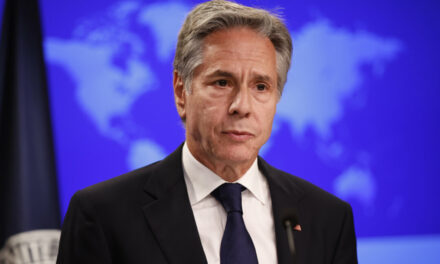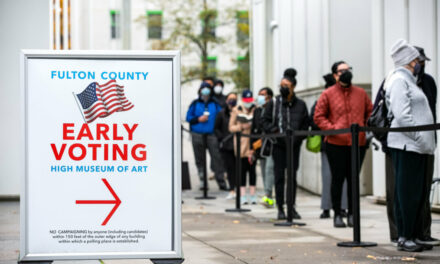We support our Publishers and Content Creators. You can view this story on their website by CLICKING HERE.
Some companies pushed back on the accusations, saying the accusations showed that the government doesn’t understand how drug pricing works.
The Federal Trade Commission (FTC) is suing major pharmacy benefit managers (PBMs) for allegedly artificially inflating the price of insulin, the agency said in an announcement on Sept. 20.
Three PBMs—CVS Health’s Caremark, Cigna’s Express Scripts, and United Health Group’s Optum—“created a perverse drug rebate system that prioritizes high rebates from drug manufacturers,” the FTC said in a press release.
Some of the PBMs named by the FTC said in statements that the government’s action showed that it does not understand how drug pricing works.
Caremark said it negotiates deep discounts for its clients and helps make insulin affordable for their members.
Both Express Scripts and Optum pushed back on the accusations with the latter saying they were baseless.
PBMs, the company said, “are the key counterweight to pharmaceutical companies’ otherwise unchecked monopoly power to set and raise drug prices.”
Express Scripts, meanwhile, accused the FTC of choosing “to ignore the facts and score political points, rather than focus on its duty to protect consumers.”
The FTC started an inquiry more than two years ago into PBMs and said it would seek a range of information about how they do business.
Express Scripts has said it’s suing the agency and wanted a July report from the FTC redacted. That report accused PBMs of being middlemen who were “squeezing Main Street pharmacies.”
The FTC said in its announcement that the price of Humalog, manufactured by Eli Lilly, increased by more than 1,200 percent between 1999 when it was $21, and 2017 when it was listed at $274.
“While PBM respondents collected billions in rebates and associated fees, according to the complaint, by 2019 one out of every four insulin patients was unable to afford their medication,” the agency said.
Insulin pricing has been a politically sensitive topic.
During his State of the Union address in March, President Joe Biden touted his Inflation Reduction Act for capping the price of insulin for seniors on Medicare.
Manufacturers
Bureau of Competition Deputy Director Rahul Rao released a statement that criticized insulin manufacturers.
“Although not named in this case, all drug manufacturers should be on notice that their participation in the type of conduct challenged here can raise serious concerns, with a potential for significant consumer harm, and that the Bureau of Competition reserves the right to recommend naming drug manufacturers as defendants in any future enforcement actions over similar conduct,” Rao said.
The statement named Eli Lilly, Sanofi, and Novo Nordisk for allegedly “sharply inflat[ing] the list price of their insulin products in response to the PBMs’ demand for higher rebates.”
“Novo Nordisk is committed to ensuring patients have affordable access to their medicines, including insulin,” a spokesperson for the company told The Epoch Times. “However, in the complex U.S. healthcare system, we do not control the prices patients pay at the pharmacy.”
In statements provided to The Epoch Times, spokespeople for Eli Lilly and Sanofi defended their companies while calling for reform.
“The FTC’s lawsuit concerns aspects of the U.S. health care system that we have long been advocating to reform,” a Lilly spokesperson said.
“Lilly is not a party to the lawsuit, and we will continue to lead the way in reducing out-of-pocket costs for people who take insulin.”
A Sanofi spokesperson maintained the company’s “pricing practices have always complied with the law.”
The company aimed at PBMs, accusing them of “leverag[ing] their position as powerful industry middlemen and have exploited rebates, longstanding features of our healthcare system, to benefit themselves while increasing costs for patients and payers at the same time.”
The Associated Press contributed to this report.

 Conservative
Conservative  Search
Search Trending
Trending Current News
Current News 







